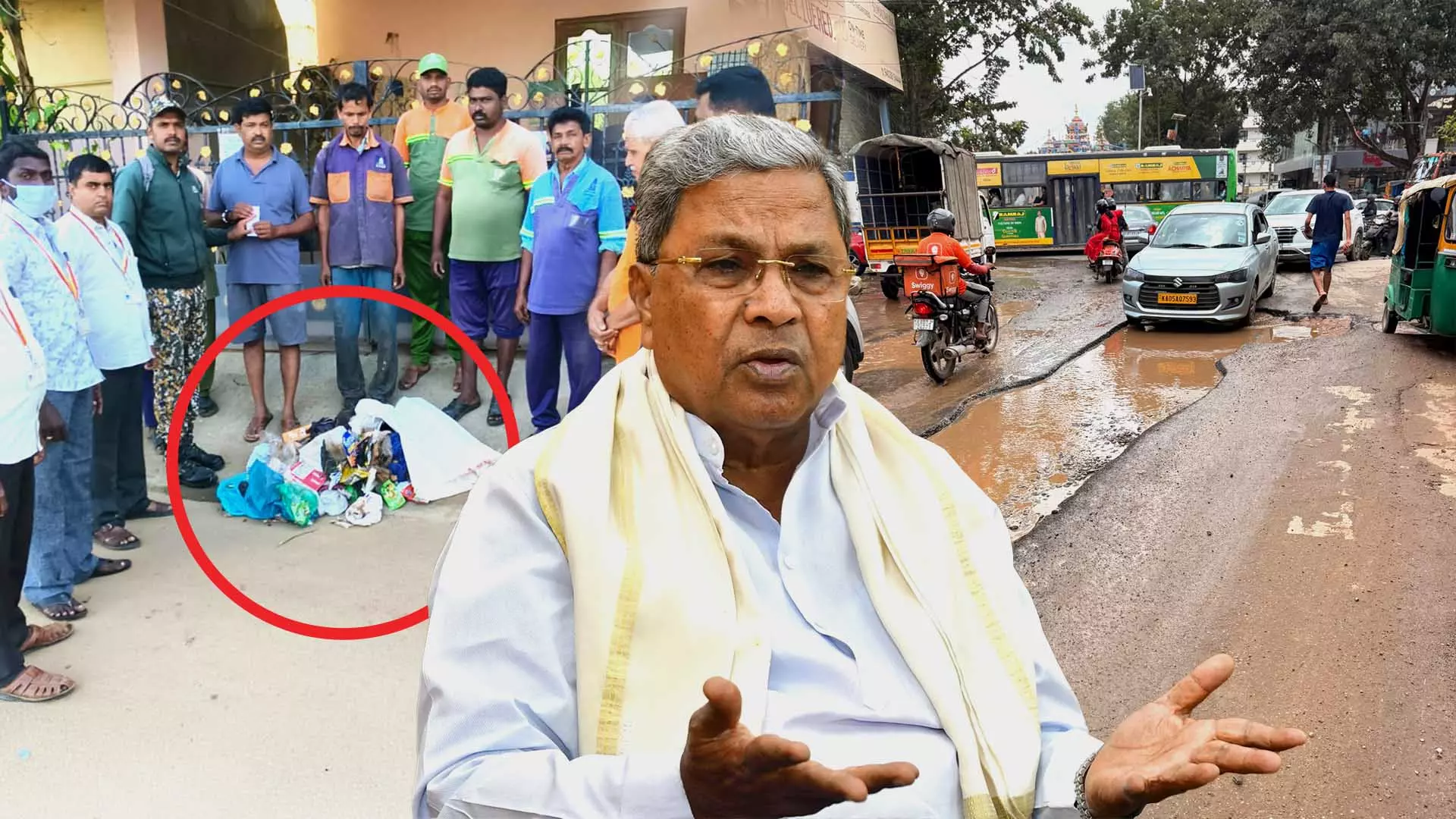
Bengaluru civic body dumps garbage back at households: Optics or accountability?
As the city’s civic body sends garbage back to habitual litterers, many wonder whether Bengaluru is fixing its waste problem — or just managing headlines.

In Bengaluru, litter has long been more than a nuisance — it’s a symbol of civic decay. From bustling markets to residential corners, heaps of garbage have transformed the once-celebrated “Garden City” into what many mockingly call the “Garbage City.”
But now, the city’s civic authorities have adopted a strikingly unconventional approach: returning garbage to those who dumped it in the first place.
The ‘festival of cleaning’
The Bruhat Bengaluru Mahanagara Palike (BBMP) and Bengaluru Solid Waste Management Limited (BSWML) have launched the ‘Kasa Suriyuva Habba’, literally translated as the festival of cleaning.
Under this drive, officials have relied on surveillance footage to identify repeat offenders. In wards such as SJP Layout and Ward 84, the waste discarded on public roads has been collected and dropped off at the offenders’ doorsteps. Penalties of up to ₹10,000 have been imposed.
Officials say the initiative is aimed at breaking the cycle of chronic littering in a city that produces over 3,500 metric tonnes of waste each day. Months of awareness campaigns and clean-up efforts, they claim, have already reduced the number of garbage black spots from 869 to 150.
The debate over ‘public shaming’
The campaign has caught public attention online, drawing both applause and criticism. Supporters see it as a long-overdue lesson in civic responsibility — a visible effort to hold people accountable for their waste.
However, critics question whether this approach tackles the roots of the problem. Many argue that while the act of returning garbage makes for viral visuals, it does little to improve waste collection systems or strengthen segregation and recycling practices.
The civic body, they say, may have won the optics battle, but the war against poor infrastructure is far from over.
The pothole paradox
The timing of the ‘Kasa Suriyuva Habba’ has also invited scrutiny. Chief Minister Siddaramaiah had set October 31 as the deadline for making Bengaluru pothole-free — a target that now seems unlikely to be met.
Across the city, roads remain cratered and uneven. Recent rains have worsened the situation, turning commutes into endurance tests. While civic authorities celebrate their cleanliness campaign, the city’s road conditions have become a daily reminder of unfulfilled promises.
Optics or overhaul?
Bengaluru’s urban challenges go far beyond litter — crumbling roads, traffic congestion, and fragile drainage systems continue to weigh on the city’s infrastructure.
The ‘Kasa Suriyuva Habba’, though imaginative in intent, risks becoming a symbolic exercise unless it leads to lasting behavioral and structural change. For now, the garbage may have returned to its source — but true accountability still hasn’t.
The content above has been transcribed from video using a fine-tuned AI model. To ensure accuracy, quality, and editorial integrity, we employ a Human-In-The-Loop (HITL) process. While AI assists in creating the initial draft, our experienced editorial team carefully reviews, edits, and refines the content before publication. At The Federal, we combine the efficiency of AI with the expertise of human editors to deliver reliable and insightful

